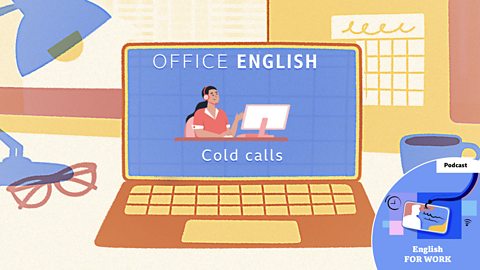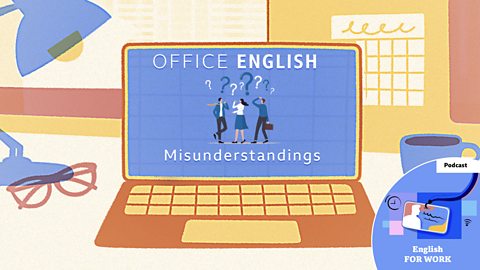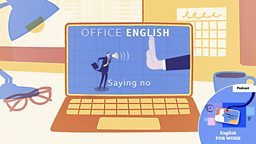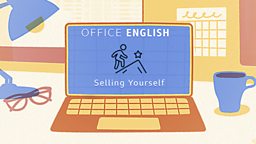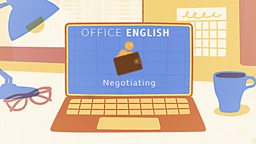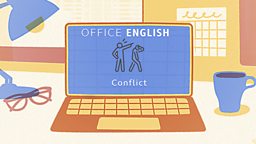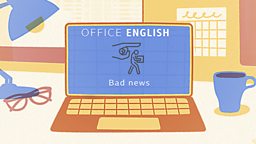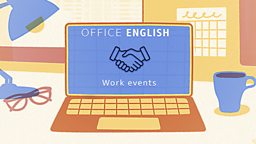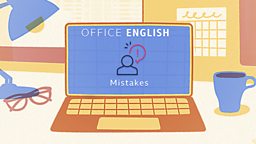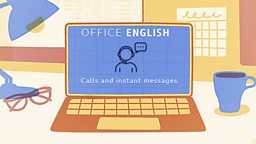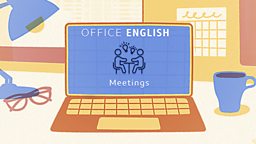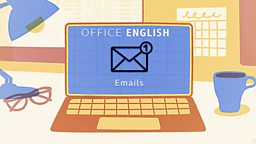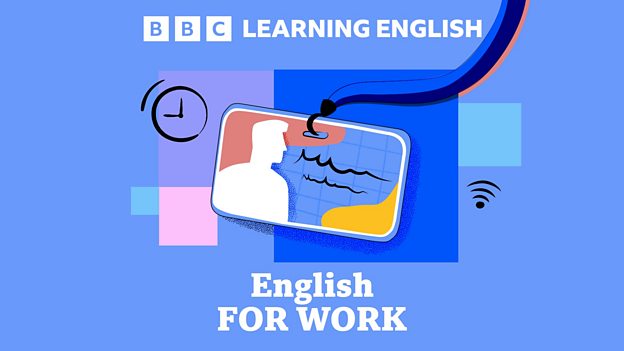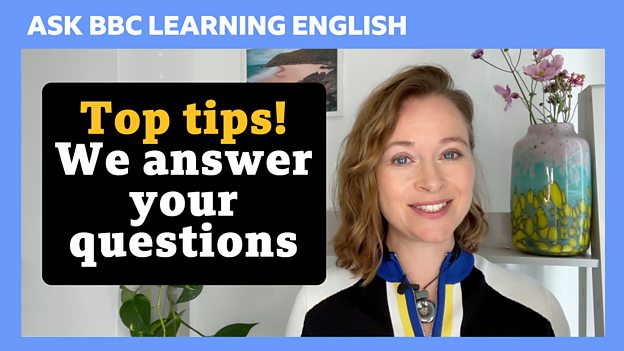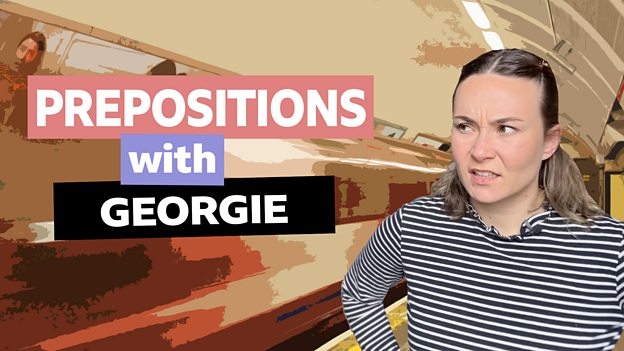Office English
Upper intermediate level
Emails
Episode 240129 / 29 Jan 2024

Image: Getty
Introduction
Do you struggle to write the perfect email at work? It can be difficult to know how formal or friendly to be when you are writing to a colleague, your boss, or somebody at another company. Can you use 'Hi' in an email? How do you end your email so that someone will reply? In this episode of Office English, Pippa and Phil talk about their email habits and suggest some useful phrases for different situations.
TRANSCRIPT
Note: This is a transcript of a spoken conversation and is not a word-for-word script.
Pippa
Emails. Should they be formal? Friendly? It can be difficult to know.
Voicenote clips
More formal than informal, although at times you might get a smiley face from me.
If it's someone that I've never spoken to before then it's more formal. But I'd still probably say Hi rather than Dear.
You know, those technicalities of when to write Kind regards and when to write Best wishes.
Phil
Today on Office English, we're learning the best language for emails, whoever you're sending them to.
Pippa
Hello and welcome to a brand new business podcast series Office English from BBC Learning English. I'm Pippa.
Phil
And I'm Phil. And in this series, we'll be guiding you through the trickier areas of business language and discussing some useful words and phrases for you to use in the office or wherever you work.
Pippa
Business language can be tricky. Even for native speakers of English. And the workplace is changing all the time with new technology and more people working from home. So we're here to talk about some of the techniques and phrases that we use at work.
Phil
At BBC Learning English we're all fluent English speakers working in a British cultural context. So that's the situation we have the most advice for. But we'll try to point out where things might be a bit different in different workplaces around the world.
Pippa
This first episode is all about emails. We've already heard from BBC colleagues that not everyone agrees on how we should write emails. But what do you think, Phil? Should an email sound like a letter?
Phil
Probably not. Everything with email depends on the situation, depends on who you're writing to and why. But I think an email is usually a lot less formal than a letter.
Pippa
Mmm yes, I agree. I would say I'm quite informal in most of my emails. But, as you say, it depends on who I'm emailing. So, in this episode, we're going to look at how to address emails, some useful email phrases, and how to sign off depending on who you're sending the email to.
Phil
OK, so first off, the email greeting. What phrases are we looking at here, Pippa?
Pippa
OK, so the first phrase we could use to start an email would be to say Dear Phil. What do you think about that?
Phil
I do use Dear sometimes. It's not the one I use most, but I do use it. And I'll tell you when I use it. I use it when I'm writing an email to someone I've not written to before or someone who I'm a little bit scared of. Or maybe someone who's very important or very serious. Or if someone wrote to me and they used Dear, I'd look at what they've said and sort of mirror it, I'd do the same back.
So I do use, Dear. But it's not the one I use most often because I think in an email it sounds a bit formal.
Pippa
Yes, I agree. There's nothing wrong with saying Dear Phil. Nobody would think that that was bad English. I use it sometimes if I had to write an email on behalf of a company.
So, you know, a more formal email that's not from me, but from the company that I represent. What I might use for a more personal email to a colleague, or something, is just to say Hi or Hello.
Phil
Yeah, and actually this is the one that I use the most. I think 90% of my emails probably start with Hi. Definitely with someone I know I’d use Hi. If I'm not worried about who I'm writing to in any big way then I would use Hi. It's not formal, but in an email, it's not very informal, either, I don't think.
Pippa
Yes. And certainly in the UK we're more and more informal at work. So emails sound more and more like text messages. Not completely, but saying Hi or Hello doesn't feel out of place. One thing I like to say sometimes, if I'm not sure whether to be formal or informal, is to start my email with Good morning or Good afternoon. What do you think about that?
Phil
I think that's a really nice way to do it because it, it can sound kind of friendly, but it can also sound kind of formal. You can sort of see it in two different ways.
Pippa
Yes. If you said Good morning to someone when you were speaking that would sound quite formal. It makes me think of being at school and you would say, sort of Good morning, Miss or Good morning, Sir to the teacher. What about emails where you don't know the name of the person, Phil? What would you do then?
Phil
Oh, yes. We've got all these formula for using in letters like To whom it may concern or Dear Sir or Madam. But they often sound a bit cold and a bit unfriendly. It does depend on the situation. It will be different in different countries. It might be different in different industries. If you're a lawyer, it might be different. But I would probably use... If you use Hi, you don't actually need to say who you're writing to you can just say Hi.
Pippa
Yeah, that's really useful because when you say Dear at the start of an email, you need to put the name of the person. You can't just say Dear [pause] I'm writing about... that doesn't make sense in English. So, yeah Hi is really useful. Again, Good morning, Good afternoon work as well because you don't need the name. You can also hide the fact that you don't know the name of the person. Sometimes people like you to know and have researched who you're messaging. Sometimes that's not possible. So, just saying Hi or Hi there could work to be really friendly, but mask the fact that you don't know their name.
Right, so we've started our email OK. Next, let's look at a couple of popular email phrases and when we might use them.
Phil
OK, yes. So we've got this one here: I am writing to enquire about... What do you think of that?
Pippa
Well, that's kind of a formal way to state what your email is about. It's something you might write in a letter. We don't tend to use it in emails as much. I might say, if I was trying to be a bit friendlier, I'm wondering if you can help me with... instead of I'm writing to enquire about...
Phil
Yes, no definitely. It's something that sounds very normal in a letter, but a bit strange in most emails, I think. OK, we've got another one here. Please find attached...
Pippa
Ah, yes. This is one that you see a lot. And we might use please find attached... in an email to say that we're sending a file or a link. So that's what it means. A more informal way of saying this would just be to say here is... the document you asked for, here is... the report or here's... the link to the podcast that you wanted to listen to. That would be probably a more friendly way to write an email to a colleague or someone at work that you know well, rather than please find attached... But I think please find attached... has a place in an email occasionally.
Phil
Yeah. Again, we were talking about formal ones, maybe if you're representing a company or writing to people that you don't know. A bit of a guide for emails can be that emails are a lot more like the way we speak to someone. Whereas letters are often... formal letters are often a bit different to the way that you would talk to someone.
And finally. How should we say goodbye at the end of the email. What are the options, Pippa?
Pippa
OK, so our first option would be to say something like Yours sincerely or Yours faithfully. What do you think of that, Phil?
Phil
Now, this is the thing you always get taught to put at the end of a formal letter. I remember at school being taught this and I think it's probably still true for a formal letter. But I think it's a bit unusual on an email, even quite a formal email, I think it's unusual to see this.
Pippa
Yes, something that people might use instead, even in quite a formal email, is to say something like Kind regards because it's quite formal, but it still sounds polite.
Phil
Yeah, I actually often just use Regards a lot at the end of my emails. And it's, it's because it's in that sort of sweet spot of being a bit formal, but a bit friendly and it means I don't have to think too much about what I'm putting at the end of an email. Cos I'm never sure.
Pippa
Mmm, I usually will say All the best or Best wishes particularly if it's to somebody I don't know well, or it's the first time I’ve emailed someone, because it's quite formal. But it's good to switch up the options. Especially if you're emailing back and forth a lot with somebody. You don't want to keep writing the same thing. I just find that feels a bit strange to keep saying All the best. Especially when they reply quickly and then you reply. It's just like seems like it has no meaning by that point.
Phil
Now, this might be a very English thing because we do this a lot and often look for opportunities to do it, but if it makes sense to say Thanks or Many thanks at the end of the email, I will often do that.
Pippa
Yes. Or you could say Thank you in advance. If you've asked for a favour in the email you can end by saying Thanks in advance just to remind them that you are asking for something. Or if you're just sending a note round to remind someone of something Thanks can be useful as well. Sort of, thanks for reading.
Phil
And I guess something similar is this phrase here: Looking forward to hearing from you. And it's... you're kind of suggesting that something is going to happen in the future. But it's not... It's not an impolite way of doing it. It's kind of a friendly way of saying you're expecting someone's reply and that you genuinely would like to hear from them.
Pippa
Yes, I love that. It's one of my favourites, actually. Looking forward to hearing from you. And I will say that often when I've sent an email to somebody to ask for something, I've not emailed them before and I would like them to reply, but I'm not sure that they will reply. So saying Looking forward to hearing from you is a really friendly way to kind of encourage them to reply. And it just kind of creates a strange expectation that they are going to come back to you on, on what you've asked for.
Pippa
So, deciding how formal to be in an email is tricky. Let's listen again to what people at BBC Learning English had to say.
Voicenote clips
If it's someone that I've never spoken to before then it's more formal, but I'd still probably say Hi rather than Dear.
More formal than informal. Although at times you might get a smiley face from me.
Pippa
Smiley faces in emails! What do you think, Phil?
Phil
If I'm not scared of the other person, I'll often use a smiley face cos it's friendly and you can communicate a lot with them. But if it's a situation where you need to be a bit serious or you need to show a lot of respect to the other person, then it's probably not appropriate.
Pippa
Yes, definitely. I think smiley faces could be useful if lots of people in your office use them because sometimes when you just write something down people don't quite understand the tone of what you're saying. So they don't know if you're being friendly, or serious, or you're really annoyed. So a smiley face can sometimes help with that.
But I would not use it frequently with, or at all, with people I don't know, with people who are senior in a company. Usually it's kind of about what the other person does. So a good rule is when you're replying to somebody to try and match the way that they've written their email. So if they're sending lots of smiley faces, you're probably safe to send them back. But if they're being really formal, saying Dear and Kind regards it's useful to kind of match that in your reply.
Phil
Yes, so do look out for those things. Look at how other people start their emails. Look at whether they use smiley faces or not. Also think: Does it sound like someone talking? If it does, it's probably quite informal and you're not going to have any problems doing the same thing back.
Pippa
Yep, unless their email is really rude. Then you might not want to be rude back to them!
Phil
That's all we've got time for on this episode of Office English. Remember, you can find courses and activities to help with your English at work at bbclearningenglish.com
Pippa
Next time, we'll be talking about meetings and how to get your ideas heard at work.
Phil
Bye for now. Or should I say, All the best?
Pippa
Kind regards!
Phil
Bye!
